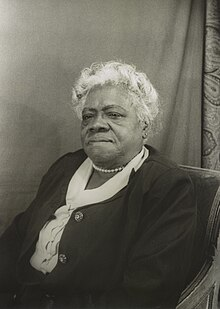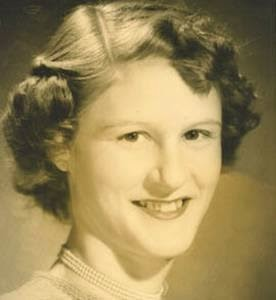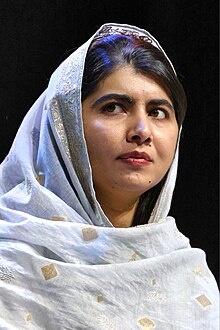It has been barely the blink of an eye since women fought for and earned the right to an education. In fact, in American history, women were not federally protected against discrimination in schools due to their sex until Title IX was passed in 1972, merely 52 years ago.
While the passing of Title IX was a huge milestone, women have shaped the way we learn and think for centuries and left a dramatic impact on the systems that continue to empower, educate, and inspire millions upon millions of people worldwide to this day.
In honor of Women’s History Month, let’s take a look at five of the most influential voices of our age and pay homage to the giants in the learning field whose shoulders we stand on:
Maria Montessori (1870-1952)
Maria Montessori was an Italian educator best known for pioneering the Montessori method, which she began developing in 1897 at the age of 27. Before this, she was one of the first women to attend medical school in Italy and graduated as a doctor of medicine in 1896. Her studies led her to a career working with children who experienced cognitive, behavioral, and other disabilities.
Her discoveries and observations, as well as inspiration from other educational sources, evolved into the Montessori method that is still used in education to this day. She spent her career using her voice and her talents to advocate for the development and inclusion of classes for people with disabilities around the world.
Mary Jane McLeod Bethune (1875-1955)
 Mary Jane McLeod Bethune was an American educator, philanthropist, and civil rights activist. As the second youngest of seventeen children born to emancipated slaves, Bethune grew up exposed to the sharp reality that Black children were often barred access to education and faced prejudice and bigotry in their pursuit of knowledge. This inspired her to pursue an education with extra vigor, and she went on to become an uplifting, inspiring voice for equality in education, politics, civil duties, and economics.
Mary Jane McLeod Bethune was an American educator, philanthropist, and civil rights activist. As the second youngest of seventeen children born to emancipated slaves, Bethune grew up exposed to the sharp reality that Black children were often barred access to education and faced prejudice and bigotry in their pursuit of knowledge. This inspired her to pursue an education with extra vigor, and she went on to become an uplifting, inspiring voice for equality in education, politics, civil duties, and economics.
Bethune’s career was beyond prosperous and littered with accomplishments. She founded the National Council of Negro Women in 1935, a non-profit organization still around today that pushes for the rights of black women in many sectors, including education. Bethune also began a private school for African-American children, which developed into Bethune-Cookman University. She also worked on President Franklin D. Roosevelt’s presidential campaign in 1932 and went on to create the Federal Council on Colored Affairs, aka the Black Cabinet. These organizations stayed true to Bethune’s original vision and provided opportunities for equality and progression in all public sectors.
Madeline Cheek Hunter (1916–1994)
 Madeline Cheek Hunter was an American educator (originally from Canada) who grew up and spent most of her early years in California. Her experience in an experimental psychology school during her youth inspired her interest in human psychology. She later attended medical school and, eventually, school psychology. She learned early in her life the importance of positive reinforcement in education, as opposed to negative reinforcement and shame.
Madeline Cheek Hunter was an American educator (originally from Canada) who grew up and spent most of her early years in California. Her experience in an experimental psychology school during her youth inspired her interest in human psychology. She later attended medical school and, eventually, school psychology. She learned early in her life the importance of positive reinforcement in education, as opposed to negative reinforcement and shame.
Hunter is known for developing the Instructional Theory into Practice teaching model, or ITIP. This teaching model comprises seven essential elements to guide lesson plans and teacher decisions that ultimately leads to a deeper understanding of the subject. ITIP was an immense success, and schools adopted the model en masse across America in the 1970s and 80s. The Sierra Research Institute and the National Women’s Hall of Fame named her one of the ten most influential women in education and one of the hundred most influential women of the 20th century.
Malala Yousafzai
 Arguably the most well-known female education activist of the 21st century, Malala Yousafzai is a Pakistani Nobel Peace Prize Laureate who hit international recognition after surviving an attempt on her life. The Taliban tried to assassinate her when she was just 15 years old to silence her advocacy for Pakistani women’s access to education. The attempt failed, and Yousafzai’s name became a sensation overnight.
Arguably the most well-known female education activist of the 21st century, Malala Yousafzai is a Pakistani Nobel Peace Prize Laureate who hit international recognition after surviving an attempt on her life. The Taliban tried to assassinate her when she was just 15 years old to silence her advocacy for Pakistani women’s access to education. The attempt failed, and Yousafzai’s name became a sensation overnight.
Yousafzai used her newfound worldwide fame to springboard her activism to the next level. Just one year after the assassination attempt, she published her autobiography, I Am Malala, and won the Sakharov Prize for Freedom of Thought. The following year, she became the youngest Nobel Peace Prize Laureate and the only person of Pashtun ethnicity to ever win the accolade. She continues to use her voice to advocate for the right to education, especially for Pakistani women. She currently holds a Bachelor of Arts degree in Philosophy, Politics, and Economics and was named an Honorary Fellow at Oxford’s Linacre College.
Susan Isenberg
Susan Isenberg’s breakthrough educational research is the only reason you’re reading this article online! Her doctoral dissertation, written in 2005, provided a framework for how adult learning could be greatly enhanced through the Internet. She published her dissertation, Applying Andragogical Principles to Internet Learning, in 2007. The book is described as “the most rigorous account and investigation of online adult learning ever conducted.”
The principles and practices she investigated in her study are still used in ELB Learning’s video coaching software, Rehearsal. Rehearsal directly mimics Susan Isenberg’s “Virtual Health Coach,” which was built to assess how adults learn online and what steps they can take to better themselves and improve their learning behaviors. Rehearsal is fundamentally the same but integrates additional technological advancements from the last 20 years. These include video-based prompts and the ability to record video responses, which leads to real-time, personalized feedback from mentors, peers, and AI coaches.
Conclusion
It’s important to remember these incredible voices that demonstrate a lifelong commitment to education, equality, and uplifting those around them. Each woman played a direct role in how we learn and think about learning to this day and empowers women the world over to achieve their own aspirations.
Sources:
- https://en.wikipedia.org/wiki/Maria_Montessori
- Kramer, Rita (1976). Maria Montessori. Chicago: University of Chicago Press. ISBN 0-201-09227-1.
- https://www.inderscienceonline.com/doi/abs/10.1504/IJART.2010.030497
- https://en.wikipedia.org/wiki/Mary_McLeod_Bethune
- https://en.wikipedia.org/wiki/Madeline_Cheek_Hunter
- https://en.wikipedia.org/wiki/Malala_Yousafzai
- https://www.iup.edu/pse/files/programs/graduate_programs_r/instructional_design_and_technology_ma/paace_journal_of_lifelong_learning/volume_25,_2016/henschke-1.pdf
- https://www.cambriapress.com/pub.cfm?bid=27
- https://web.archive.org/web/20141010211003/http://www.people.com/article/malala-yousafzai-wins-nobel-prize
- https://products.elblearning.com/create-learning/rehearsal
- https://cherwell.org/2023/05/05/malala-receives-honorary-linacre-fellowship/
View the original article and our Inspiration here
